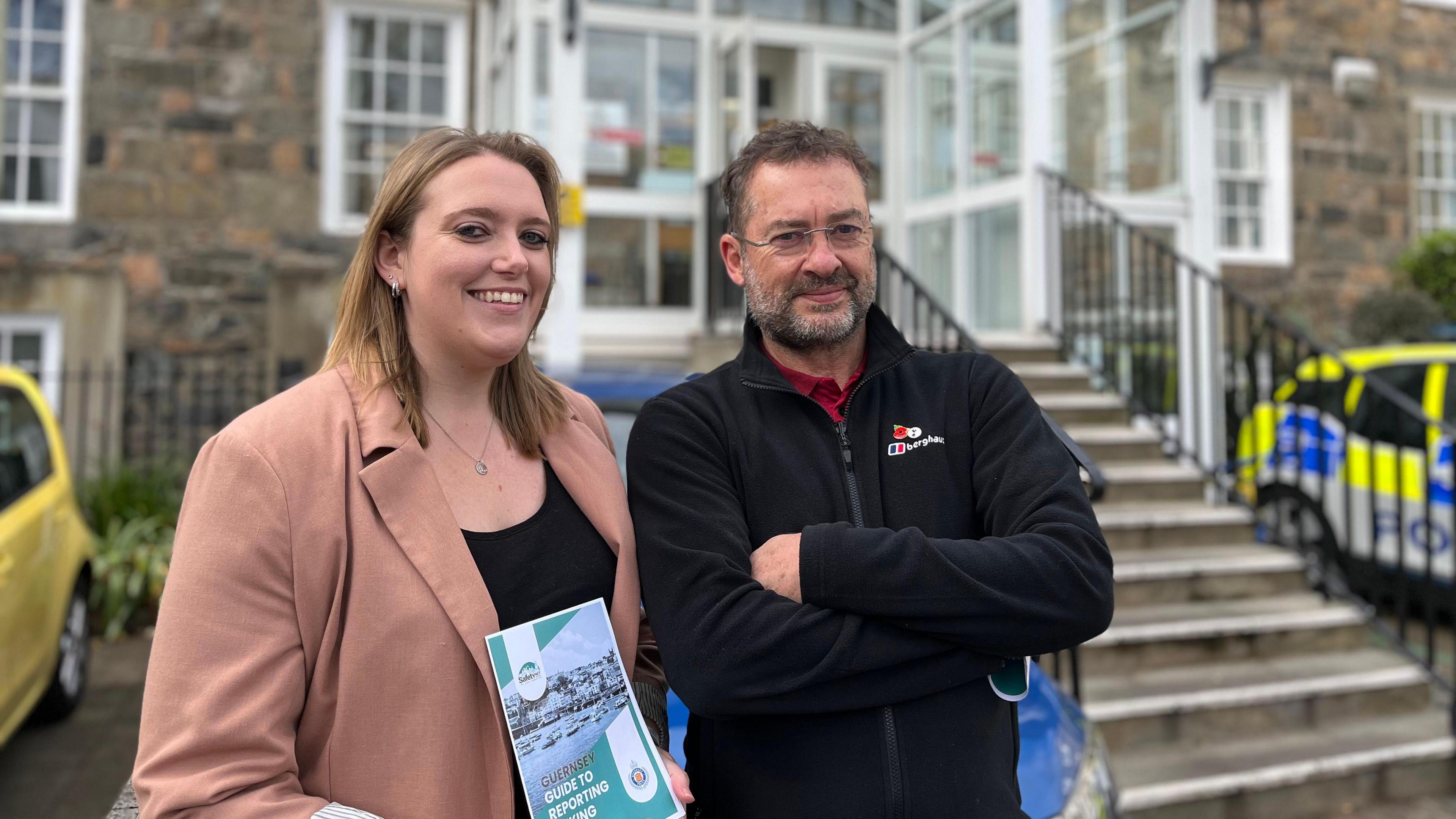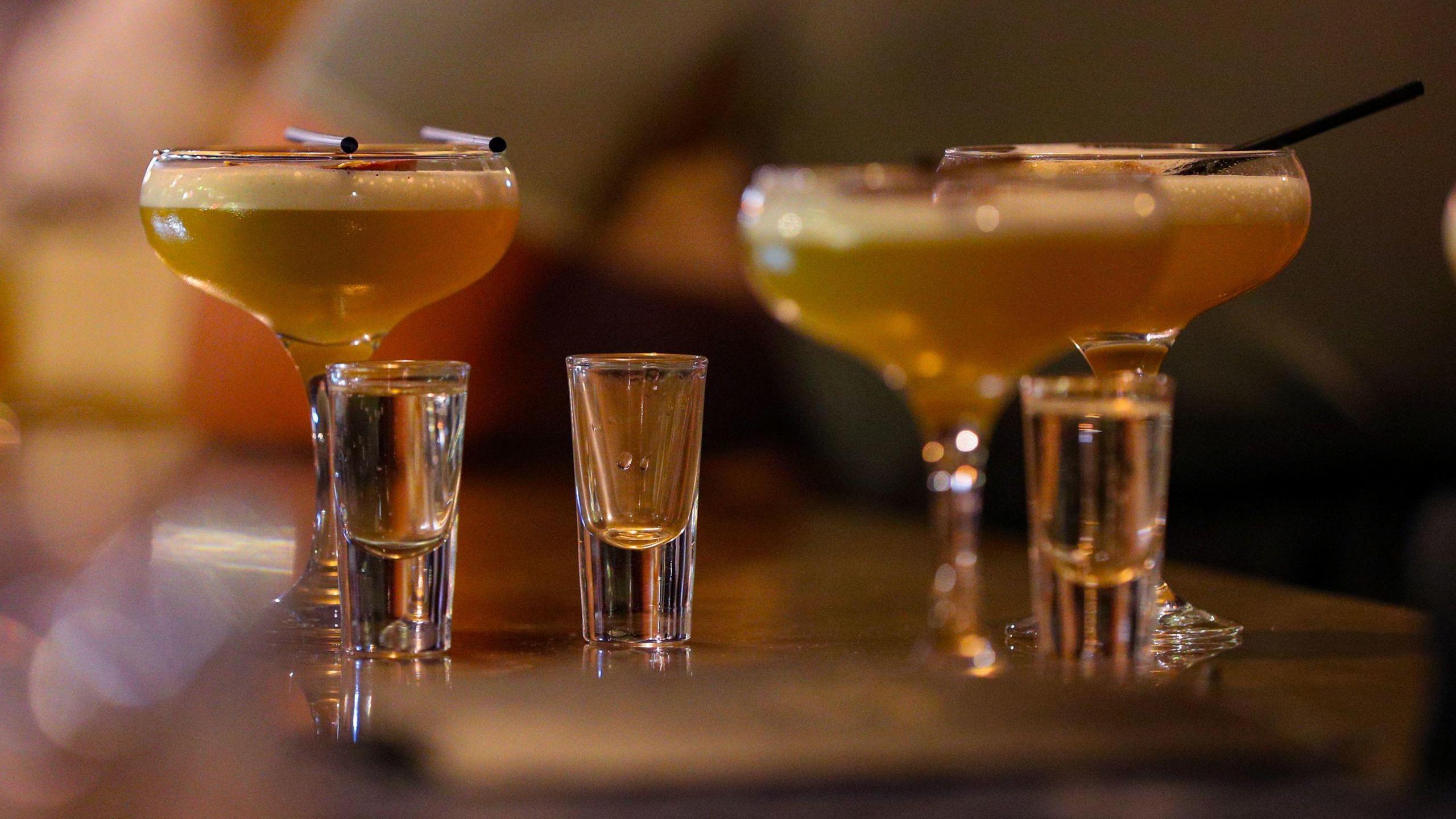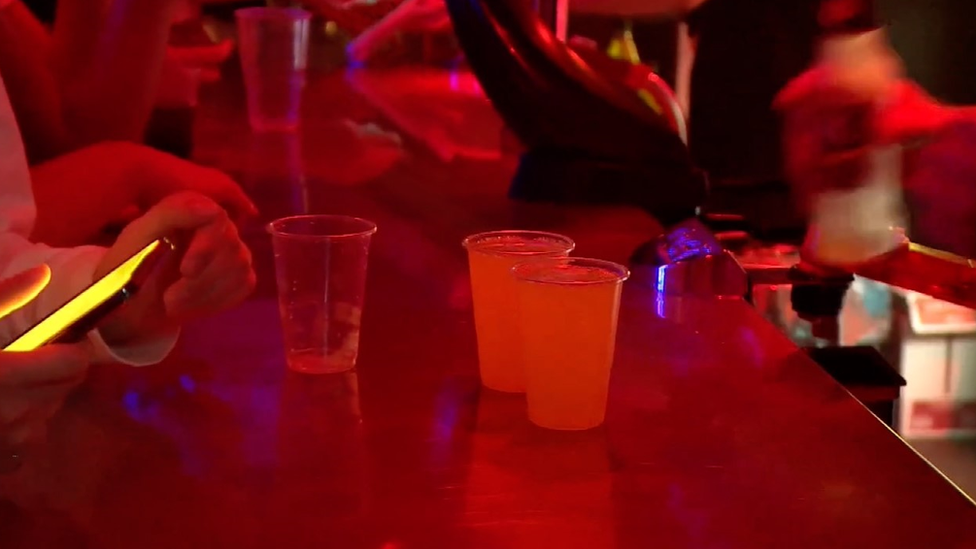Information pack to help drink spiking victims

Poppy Murray and Simon Allum have been involved in the creation of the information pack
- Published
A charity has released an information pack in Guernsey to help people who have had their drinks spiked.
The Guernsey Guide to Reporting Spiking has been created by the Safety Night-time Economy Team (Safety Net) in partnership with Guernsey Police.
The charity said the guide included an outline of the law, how a case could be evidenced, how to report a suspected spiking and information about support services.
The charity was set up in 2023 to help tackle sexual assault, harassment and drink spiking.
'Feel violated'
Charity chairwoman Poppy Murray said: "Unfortunately, the overwhelming majority of times these crimes aren't being reported.
"A lot of time the fear of the unknown can stop people from taking those next steps, so this guide clarifies everything you'd need to know about if you want to make a report or if you want to get help locally."
Penalties for spiking in Guernsey, external can vary from up to 10 years in prison to a fine of up to £10,000, depending on the proven intention of the perpetrator.
Simon Allum, director of the PingQuays bar in St Peter Port and trustee of the charity, said he had his drink spiked at a wedding 20 years ago.
He said: "You feel dreadful the next day, you feel violated.
"As life goes, you get on with your day-to-day life; but it has always stuck with me."
Mr Allum said the charity wanted to "raise public awareness of the issue".
Improve knowledge
Guernsey Police Det Sgt Tom Lowe said the guide offered people a chance to "improve their knowledge" on spiking, and how to help others.
He said police carried out a "number of inquiries" in order to try prove or disprove spiking took place, including a toxicology report, speaking to witnesses and gathering CCTV.
“Every single report that comes in, we review it and we collect material that is required in order to prove or disprove what has happened," he said.
“Spiking reported to us will be dealt with and we want to get people on side, so if they feel like they have been spiked they know the process behind what the police would do.
“By utilising this guide, it is for people to improve their knowledge on it.”
Follow BBC Guernsey on X, external and Facebook, external. Send your story ideas to channel.islands@bbc.co.uk, external.
- Published19 December 2023

- Published16 December 2022
